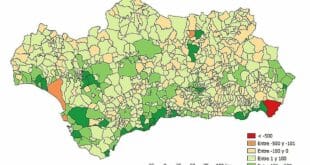Most compulsory education teachers in Spain confess to losing their passion for their job. Over the past two decades, the number of people who are interested in entering or remaining in the teaching profession has decreased. Experts do not believe that the problem can be solved unless the educational administrations adopt very specific and comprehensive measures. This is the conclusion of an EsadeEcPol Centre for Economic Policy (Esade) study, which combines its own research with that of other researchers to examine the evolution of Spanish teaching over the past 25 years.
In their research, three figures stand out. In 2007, 6 out of 10 teachers reported that they had maintained their enthusiasm despite all the problems. This number has now dropped to 24% or 3 times less teachers. The dissatisfaction with the profession has risen dramatically in the last fifteen years. In 2007, only 2 per cent of workers were disinterested in their jobs. Now, the figure has risen to 38%.
Teachers are increasingly disillusioned, tired and indifferent. It is therefore not surprising that 60 percent of teachers say they would leave teaching if another job was offered to them. Two decades ago, only 25 percent said the same thing.
It is a major problem in Spain’s education system, because experts and organisations are in agreement that teachers determine the quality.
Solutions: A shock plan to prevent school failure, job security, a MIR for education, and incentives for continuous training.
Lucas Gortazar’s analysis points out three factors that have been intertwined and have become more severe over the past century. This has led to this crisis. The first is the increase in complexity and emotional problems of students, which leads to an increased number of students with learning disabilities and a more challenging classroom environment. It is also accompanied by an increase in child poverty and a third more students of foreign descent (who are having difficulty understanding Spanish). A fifth of teenagers report anxiety issues.
Second, working conditions have deteriorated. Salary can be increased, but what wears down teachers the most is the excessive weekly teaching hours that prevent them from providing more personalised attention for students and their families, better preparation for classes, and collaboration with other colleagues. This instability, which is detrimental for the efficiency and fairness of teaching, is more prevalent (34%) in schools where there are more students from low-income families.
A lack of attractive career paths is the third factor affecting teachers’ morale. Spain is the OECD nation where secondary school teachers have the least preparation to deal with contexts that require different levels of education.
Experts from Esade suggest four specific actions for the education authorities in order to give Spanish teachers the tools and support they need to overcome the crisis.
Every year, 1.2 billion dollars are spent on reinforcements
First, a program of psycho-emotional assistance and individualised reinforcement for maths and reading, for children with the most severe learning difficulties. This programme is funded by a package of 1.2 billion dollars per year, and includes small group tutoring and psycho-pedagogical support, as well as summer programmes. Second, an ambitious plan is being implemented to reduce temporary staff in schools, particularly those with the most vulnerable students, and raise salaries for infants and primary school pupils.
The third proposal aims to improve the initial teacher education. The demand for teaching positions should be matched with the supply, which will allow the entry requirements and cut-off marks to be increased. Also, the master’s degree in secondary education should include more pedagogical training. They say the key is to create an educational MIR, similar to that of the health care system, where graduates can work in education centres and receive training under mentors for a period of one or two year, while earning a wage and preparing for quality work.
Fourth, create a career path that is attractive and rewarding. This can be done by allowing employees to choose their own positions and pay scales, and to be evaluated on the basis of merit.
 Costa News Spain Breaking News | English News in Spain.
Costa News Spain Breaking News | English News in Spain.







